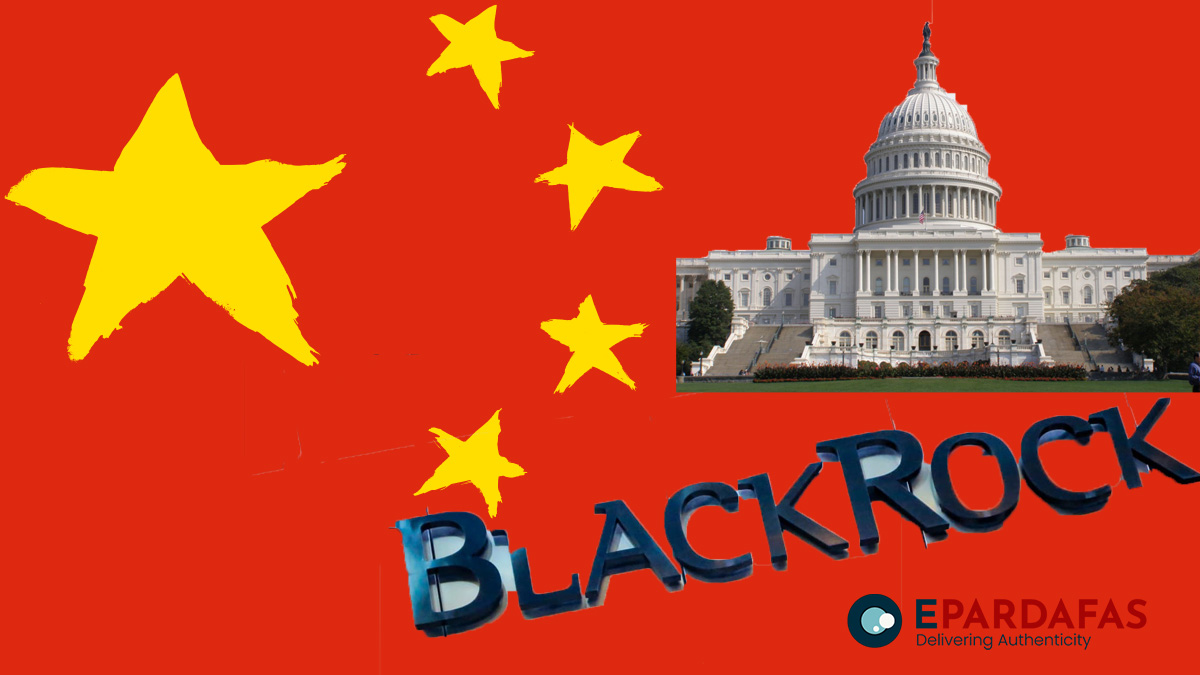
BlackRock and MSCI Under Congressional Scrutiny for Channeling U.S. Dollars into Blacklisted Chinese Entities

The world’s largest asset manager, BlackRock, and leading investment index provider, MSCI, are facing congressional probes for allegedly facilitating the flow of U.S. dollars into Chinese companies that have been blacklisted by the United States. These companies are accused of supporting China’s military advancements and human rights abuses.
In letters dated July 31, the U.S. House’s China Select Committee addressed BlackRock CEO Larry Fink and MSCI head Henry Fernandez, revealing that a preliminary review of MSCI indexes and BlackRock funds demonstrated that the two companies have directed investments to more than 60 Chinese entities already on the U.S. blacklist.
According to the committee, BlackRock’s and MSCI’s investment decisions have resulted in Americans unknowingly funding Chinese firms involved in producing weapons for the People’s Liberation Army (PLA) and supporting the Chinese Communist Party’s (CCP) mission of technological supremacy. Representatives Mike Gallagher (R-Wis.) and Raja Krishnamoorthi (D-Ill.) wrote that such actions are “unconscionable” and exacerbate national security threats while undermining American values.
The investigation into BlackRock revealed that the asset manager invested over $429 million in flagged Chinese firms across five funds. Additionally, nearly 5 percent of the MSCI China A Index is linked to blacklisted entities, leading lawmakers to suspect that the scale of such investments could be more significant than initially revealed.
This probe is part of the committee’s ongoing investigation into U.S. investments in China, which previously involved venture capital firms investing in China-based artificial intelligence, semiconductor, and quantum companies.
The bipartisan House panel, formed in January, has the authority to make policy recommendations and possesses subpoena power, which Chairman Gallagher has indicated will be used if executives fail to cooperate with the committee’s inquiries.
A source close to the committee asserted that taking a tough stance on China is one of the few issues garnering support from both sides in the deeply divided Congress.
MSCI, with over $13 trillion benchmarked to its products, is one of the largest index providers globally, while BlackRock manages more than $9 trillion in assets, serving millions of U.S. investors for their future retirement.
BlackRock stated that it complies with all applicable U.S. government laws in its investments in China and globally and will engage with the committee on the raised issues. The company offers its clients various strategies to invest in or exclude China from their portfolios, with the majority of their clients’ investments in China being through index funds.
Similarly, MSCI said it is reviewing the lawmakers’ request for information and clarified that its indexes comply with all applicable U.S. laws. The company does not manage, recommend, or facilitate investments in any country.
Some of the blacklisted Chinese entities present on MSCI indexes include state-owned aerospace firm Aviation Industry Corp. China, BGI Genomics—a genetics giant linked to forced labor—and ZTE, a telecom equipment manufacturer banned by the U.S. last year due to national security risks.
BlackRock’s investments also extend to major subsidiaries of China General Nuclear Power Group, which faced accusations of stealing U.S. nuclear technology, and China North Industries Group Co., a producer of artillery shells and munitions for the Chinese military.
The committee seeks comprehensive information from both BlackRock and MSCI, including a list of all companies on MSCI indexes, the rationale behind their inclusion, policies, and guidance documents related to conflicts of interest when dealing with China-linked entities, as well as details of U.S. investor exposure.
-With the Contribution FromInternational News Report














Comments